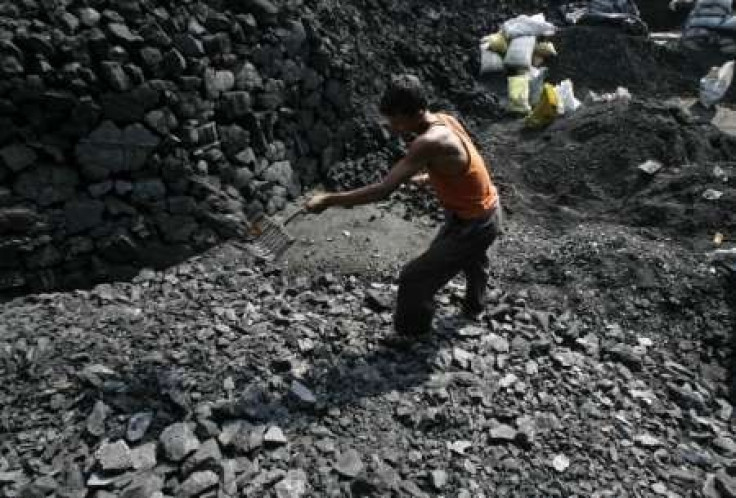S.Africa says coal for power a priority

South African Mining Minister Susan Shabangu said on Wednesday the government would act to ensure sufficient coal supplies for power generation, but urged industry to sort out the supply problem first.
State-owned power utility Eskom has been struggling to secure all the coal it needs to power Africa's biggest economy, after coal miners have increasingly been focusing on exports due to the promise of higher returns from shipments to Asia.
The shortage has been exacerbated by a pick-up in power demand as the overall economy recovered from a 2009 recession and mines in the top platinum producer ramped up output.
The lack of regulation of the coal mining industry resulted in a shift in the power balance away from the national interest to that of the shareholders of the mining companies and Eskom losing some share of its historical market, Shabangu told a conference in Cape Town.
We reserve the right to take corrective measures should the situation demand it, she said.
South Africa relies on coal for nearly all of its power, although it plans to diversify into nuclear and greener sources such as wind and solar.
Eskom says South Africa could face power shortages if domestic coal supplies are not guaranteed, as they have been in other major coal producers such as Indonesia. It also complains about having to pay for domestic coal at international prices.
Eskom faces serious challenges in securing long-term coal supplies. Unless an alternative is found, Eskom will have to pay prices linked to global markets for South African coal, which is going to impact the consumer, Chief Commercial Officer Dan Marokane told Reuters.
Eskom has been investing heavily in new plants after a near collapse of the national grid in early 2008 cost South Africa billions of dollars in lost mining and other industrial output.
STATE-OWNED MINER
Analysts say the problem goes beyond the choice between domestic supply and exports as there is enough coal to supply both, but logistical bottlenecks have limited investment.
Coal miners have already been hit by constraints on rail lines leading to South Africa's main export terminal and have been shipping far below what they would like.
South Africa produced 249 million tonnes of thermal coal in 2009, of which 74 percent was used locally, Shabangu said.
Companies in the sector include Anglo American, Xstrata, Optimum Coal and Exxaro.
Shabangu said it would be left to the industry to sort out the problem, but the government plans to set up a state-owned mining firm that is likely to focus on coal and uranium.
Coal is a strategic resource and should be treated as such. A state-owned mining company has merits and it has a lot of merits in coal, a Johannesburg-based coal analyst said.
Eskom's proposals include possible quotas on coal exports and the utility is also re-negotiating deals with suppliers hoping for pricing based on efficient cost and fair returns.
Marokane said such a model would limit Eskom's exposure to volatility in international prices, spread the risk between the companies and Eskom and ensure enough incentive for miners to invest in new mines for domestic use.
Eskom estimates the industry needs to spend 175 billion rand over the next 20 years to ensure sufficient supplies for its plants.
© Copyright Thomson Reuters 2024. All rights reserved.











